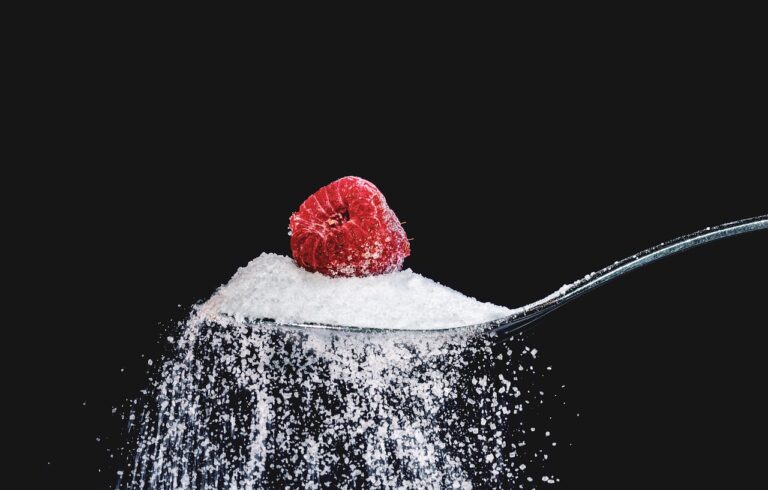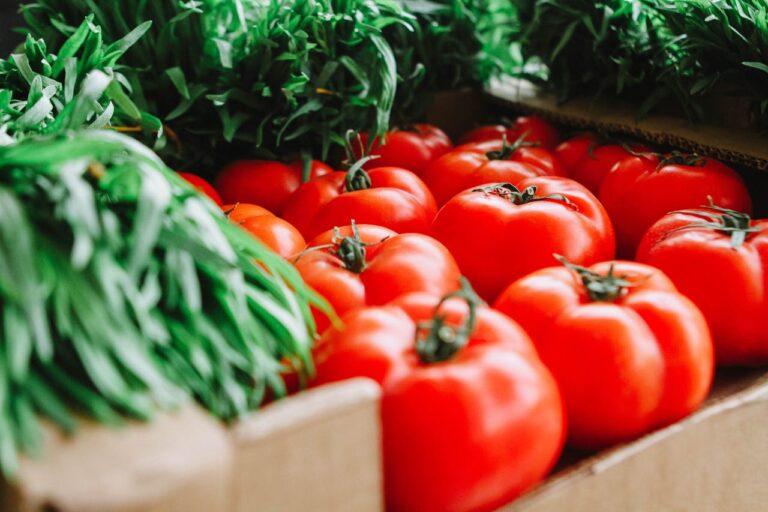
Struggling with Weight? How Blood Sugar Spikes Affect Your Body (Simple Tips from Professionals)
Affiliate links may be used in this post. I may receive a small commission at no extra cost to you if you make a purchase through my affiliate link. Read my full disclosure policy here.
The Secret to Staying Slim: How Blood Sugar Control Can Help You Lose Weight
Did you know that regulating your blood sugar might be the secret to staying slim or even shedding those stubborn pounds? Most of us associate weight gain with overeating or lack of exercise, but many people don’t realize how wild blood sugar swings can play a massive role in how our bodies store fat.
When your blood sugar spikes after a sugary meal or snack, your body responds by storing excess glucose as fat. The good news? Learning to keep blood sugar levels stable not only helps you feel energized and focused but can also support effortless weight control.
Let’s dive into how blood sugar regulation is key to keeping you lean—without crazy diets!
Understanding Glucose: The Sugar Fueling Your Body and Where to Find It
Glucose is a simple sugar and a primary source of energy for the body’s cells. It’s classified as a carbohydrate and is absorbed into the bloodstream from the foods we eat. Once in the blood, glucose can be used immediately for energy or stored in the liver and muscles for later use. The body regulates glucose levels through hormones, primarily insulin, to ensure that they stay within a healthy range.
When blood sugar levels spike too high (after eating sugary or carb-heavy foods), the body releases insulin to lower it. If this happens frequently, it can lead to weight gain, insulin resistance, and other health issues like diabetes.
Many foods naturally contain glucose, especially those rich in carbohydrates. Here’s a list of common foods that include glucose:
1. **Sugary Foods**: Candies, cakes, cookies, and other sweets are packed with glucose, often in the form of added sugar.
2. **Fruits**: Many fruits like apples, bananas, grapes, and berries contain natural sugars, including glucose.
3. **Refined Grains**: White bread, pasta, and rice are broken down quickly into glucose during digestion.
4. **Starchy Vegetables**: Potatoes, corn, and peas are high in starch, which converts into glucose when digested.
5. **Processed Snacks**: Chips, crackers, and breakfast cereals often contain added sugars, contributing to glucose intake.
6. **Soft Drinks and Juices**: These beverages often contain high levels of glucose from added sugars or fruit concentrates

How Too Much Glucose Affects Your Body: Aging, Fatigue, Insulin Resistance, and More
Excess glucose in the bloodstream can wreak havoc on the body, leading to various health issues beyond just weight gain. Here’s how:
1. **Accelerated Aging**: High blood sugar can cause the body to produce harmful molecules called advanced glycation end products (AGEs). These AGEs damage collagen and elastin in the skin, leading to wrinkles and premature aging. Chronically elevated glucose levels also impact organ function and increase oxidative stress, speeding up the aging process.
2. **Tiredness and Energy Crashes**: When blood sugar spikes, your body responds by releasing large amounts of insulin to lower it quickly. This rapid drop often results in fatigue and energy crashes, leaving you feeling drained and sluggish.
3. **Insulin Resistance**: Constant high levels of glucose force the pancreas to release more insulin over time, leading to insulin resistance. This means your body becomes less effective at using insulin, which can eventually lead to type 2 diabetes, making it harder for your body to regulate blood sugar.
4. **Infertility**: Blood sugar imbalances can disrupt hormones in both men and women. In women, high glucose levels can impact ovulation and contribute to conditions like polycystic ovary syndrome (PCOS), a leading cause of infertility. In men, insulin resistance can affect sperm quality and testosterone levels.
5. **Chronic Inflammation**: Too much glucose promotes inflammation throughout the body. Chronic inflammation is linked to a wide range of health problems, including heart disease, autoimmune disorders, and even mental health conditions.
Factors That Affect How Insulin and Glucose Impact Your Body
Beyond diet, several key factors can influence how insulin and glucose affect your body, including:
1. **Genetics**: Your genes can play a significant role in how your body processes glucose and responds to insulin. Some people are genetically predisposed to insulin resistance or diabetes, which can make it harder to maintain stable blood sugar levels.
2. **Sleep**: Lack of sleep or poor-quality sleep affects insulin sensitivity, making it harder for your body to regulate glucose. Even short-term sleep deprivation can lead to elevated blood sugar levels and increased hunger, causing overeating and weight gain.
3. **Hydration**: Staying hydrated is essential for maintaining proper blood sugar levels. Dehydration can cause blood glucose concentrations to rise, making it more difficult for insulin to do its job effectively.
4. **Hormones and Monthly Cycle**: For women, the menstrual cycle can affect insulin sensitivity. Hormonal fluctuations before and during menstruation can lead to increased insulin resistance, making blood sugar levels harder to control.
5. **Muscle Mass**: Muscle tissue is highly effective at using glucose for energy. Having more muscle mass helps your body process glucose more efficiently, improving insulin sensitivity and regulating blood sugar levels. Strength training and physical activity are essential for maintaining healthy blood sugar control.
6. **Stress Levels**: Chronic stress can trigger the release of cortisol, a hormone that raises blood sugar levels. High cortisol levels over time can lead to insulin resistance, making it harder for the body to regulate glucose.

Surprising 'Healthy' Foods That May Be Harming Your Health
Many foods that are often marketed or perceived as healthy can actually cause blood sugar spikes and other health issues. Here’s a breakdown of some common offenders:
1. **Juice**: Even 100% fruit juice is packed with sugar and lacks the fiber of whole fruit. Drinking juice can cause rapid spikes in blood sugar, making it just as harmful as sugary sodas in some cases.
2. **Cereals**: Many breakfast cereals, even those labeled as “whole grain” or “low-fat,” are loaded with added sugars and refined carbs, leading to blood sugar fluctuations and energy crashes shortly after eating.
3. **Honey**: While honey is often seen as a natural sweetener, it’s still high in sugar and can spike your blood glucose levels in the same way regular sugar does. While it does have some antioxidant properties, moderation is key.
4. **Grapes and tropical fruit**: high in natural sugars, which can contribute to a rapid rise in blood sugar. Eating them in moderation or choosing lower-sugar fruits like berries is a better option.
5. **Bread**: White bread, in particular, is made from refined flour, which is quickly digested into glucose. This causes insulin levels to spike, leading to energy crashes and potential weight gain. Even whole grain breads can have added sugars, so reading labels is important.
6. **Pasta**: Refined pasta is another food that is broken down quickly into glucose, leading to blood sugar spikes. Opt for whole grain or vegetable-based pasta alternatives to keep your levels more stable.
7. **White Rice**: Like pasta and white bread, white rice is a refined carbohydrate that is quickly converted to glucose. Brown rice or other whole grains like quinoa are healthier alternatives that are digested more slowly.
8. **Granola Bars**: Marketed as a convenient and healthy snack, many granola bars are filled with added sugars, unhealthy fats, and preservatives. They can cause spikes in blood sugar, leaving you feeling hungry again soon after.
9. **Low-Fat Yogurt**: While yogurt can be a good source of probiotics, many low-fat versions are packed with added sugars to improve taste. These sugars negate any health benefits, spiking blood sugar and contributing to weight gain.
10. **Agave Syrup**: Often promoted as a natural sweetener with a lower glycemic index, agave syrup is actually very high in fructose. Excessive fructose consumption can lead to insulin resistance, fatty liver disease, and increased belly fat.
11. **Veggie Chips**: While “veggie” is in the name, many veggie chips are highly processed and contain little to no actual vegetables. They are often fried or baked with added oils and salt, making them as unhealthy as regular potato chips.
12. **Smoothies**: Pre-packaged or store-bought smoothies, while they may contain fruit, are often loaded with added sugars or syrups. The lack of fiber (which is lost during the blending process) can also lead to blood sugar spikes.
13. **Dried Fruit**: Though fruit is healthy, dried fruit is concentrated in sugars and often has added sweeteners. Eating too much dried fruit can significantly raise blood sugar levels and contribute to insulin resistance.
14. **Flavored Oatmeal**: Instant oatmeal with added flavors might seem healthy, but it often contains a significant amount of sugar. Opt for plain oats instead and sweeten them naturally with fresh fruit or cinnamon.
These foods, often marketed as “healthy” choices, can actually do more harm than good by causing blood sugar spikes, promoting weight gain, or contributing to chronic diseases over time. Being mindful of ingredient labels and sticking to whole, unprocessed foods is the best approach to maintaining overall health.

Simple Strategies to Naturally Regulate Blood Sugar Levels
To regulate blood sugar spikes naturally and easily, “The Glucose Goddess” (Jessie Inchauspé) offers several science-backed tips that can make a big difference:
### 1. **Eat Vegetables First**
Starting your meal with fiber-rich veggies helps slow the absorption of sugars and carbs that come later. Fiber forms a gel-like substance in your gut, which slows down the breakdown of glucose, preventing spikes in blood sugar.
### 2. **Add a Side of Vinegar**
Consuming a tablespoon of apple cider vinegar diluted in water before meals can help reduce blood sugar spikes. The acetic acid in vinegar slows down the conversion of carbohydrates into sugar and improves insulin sensitivity.
### 3. **Move After Eating**
Even just a 10-15 minute walk after a meal can reduce blood sugar spikes. Movement uses up glucose in the bloodstream as fuel, preventing it from accumulating and causing spikes.
### 4. **Prioritize Protein & Fat**
Incorporating healthy fats and proteins into your meals can slow down the release of sugar from carbs, keeping your blood sugar levels stable. Think avocados, nuts, seeds, eggs, or fish.
### 5. **Avoid Sweet Foods on an Empty Stomach**
Eating sugary foods on an empty stomach leads to immediate blood sugar spikes. Pair sweets with a balanced meal or consume them after eating something that contains fiber, protein, or fat to mitigate the sugar rush.
### 6. **Eat Carbs Last**
When you eat the components of your meal in a specific order (fiber first, proteins and fats second, and carbohydrates last), you can significantly reduce glucose spikes.
Incorporating these habits into your daily routine can lead to better blood sugar control, weight regulation, and improved energy levels.
Starting your meal with fiber-rich veggies helps slow the absorption of sugars and carbs that come later. Fiber forms a gel-like substance in your gut, which slows down the breakdown of glucose, preventing spikes in blood sugar.
Incorporating these habits into your daily routine can lead to better blood sugar control, weight regulation, and improved energy levels.
Related Article: Beyond treadmill: Healthy habits of slim woman who never go to gym
Empower Your Health: Mastering Blood Sugar Regulation
In conclusion, regulating blood sugar levels is not just a matter of avoiding sugary snacks or counting carbs; it involves a holistic approach to diet and lifestyle. By implementing simple strategies such as prioritizing fiber-rich vegetables, incorporating healthy fats and proteins, and making mindful choices about food order, you can maintain stable blood sugar levels, support weight management, and enhance your overall well-being.
Understanding the impact of certain foods on your body can empower you to make healthier choices. The journey to better blood sugar regulation starts with small, manageable changes that can yield significant results over time. Remember, you have the power to shape your health by making informed decisions today. Embrace these strategies to enjoy a healthier, more balanced life.
Take charge of your health and explore these strategies further, and feel free to share your experiences and any tips you’ve found effective in managing blood sugar spikes. Together, we can build a community focused on health, wellness, and support!

The Secret to Staying Slim: How Blood Sugar Control Can Help You Lose Weight
Did you know that regulating your blood sugar might be the secret to staying slim or even shedding those stubborn pounds? Most of us associate weight gain with overeating or lack of exercise, but many people don’t realize how wild blood sugar swings can play a massive role in how our bodies store fat.
When your blood sugar spikes after a sugary meal or snack, your body responds by storing excess glucose as fat. The good news? Learning to keep blood sugar levels stable not only helps you feel energized and focused but can also support effortless weight control.
Let’s dive into how blood sugar regulation is key to keeping you lean—without crazy diets!




Comments (2)
Sasha
October 9, 2024 at 7:19 pm
I have this problem. I do not lose any weight because my insulin spikes. I can eat a bare minimum and still, I do not lose weight. I am going to try apple cider vinegar as you suggested and exercise after meals. Let’s hope this helps. Thank you for an insightful post!
monmon
October 10, 2024 at 9:58 pm
Good luck. Try and have your blood tested. There may be something else.
Comments are closed